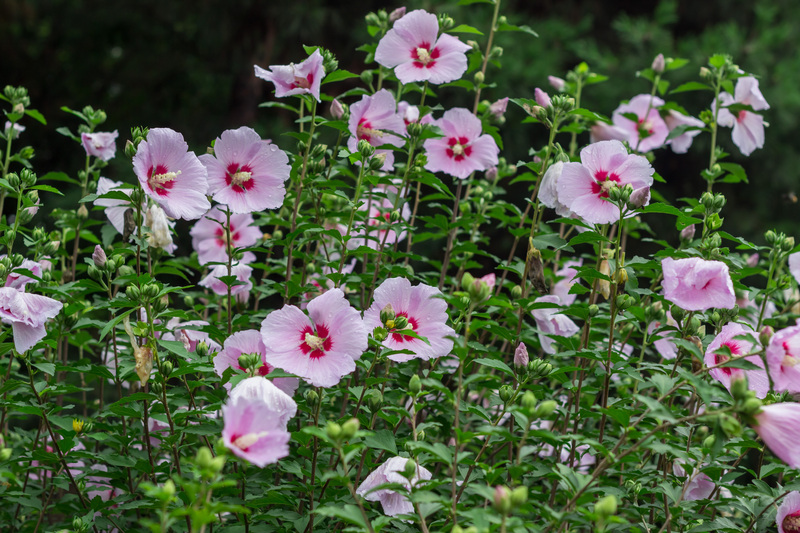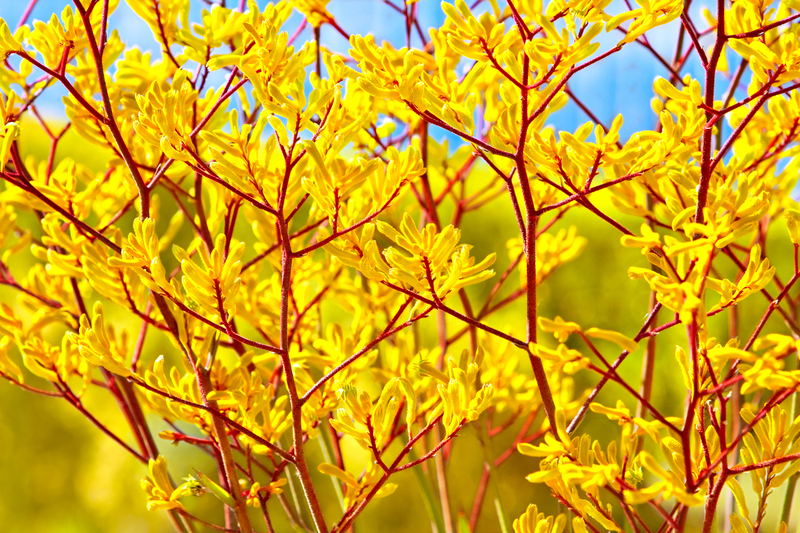Your Path to a Pristine Garden: 3 Weed Control Tips
Posted on 14/08/2025
Your Path to a Pristine Garden: 3 Weed Control Tips
Maintaining a pristine garden is the dream of every homeowner and gardening enthusiast. However, managing persistent garden weeds can feel like a never-ending chore. Weeds not only mar the beauty of your landscape but also compete with your beloved plants for nutrients, sunlight, and water. The good news? Effective weed control solutions are within your grasp. This comprehensive guide explores three essential weed control tips that will put you on the path to a lush, immaculate garden.
Why Weed Control Matters in Your Garden
Before diving into specific weed control methods, it's important to understand the impact of uncontrolled weeds on your outdoor space. Weeds can quickly overtake flower beds, lawns, and vegetable plots, diminishing both the aesthetic and functional value of your garden. Some species even release chemicals that stunt the growth of desirable plants, while others may harbor pests and diseases. Implementing strategic garden weed control tips ensures your green sanctuary remains thriving, healthy, and beautiful throughout the seasons.

1. Mulching: Nature's Protective Blanket
What is Mulching?
Mulching is one of the most effective and eco-friendly weed prevention tips. This technique involves spreading a layer of organic or inorganic material over the soil surface in your garden beds and around plant bases. Mulch acts as a protective barrier, blocking sunlight from reaching weed seeds and significantly reducing their ability to germinate.
Benefits of Mulching for Weed Control
- Suppresses Weed Growth: By limiting sunlight penetration, mulch prevents most weed seeds from sprouting.
- Retains Soil Moisture: Mulch conserves water, freeing you from constant watering duties.
- Regulates Soil Temperature: It keeps soil cooler in summer and warmer in winter, improving plant health.
- Boosts Soil Fertility: Organic mulches (like wood chips or straw) break down over time, enriching the soil.
Best Practices for Mulching
- Choose the Right Mulch: Organic options (bark, compost, straw) are ideal for gardens, while inorganic ones (gravel, landscape fabric) last longer in walkways.
- Apply a Sufficient Layer: Spread 2-4 inches of mulch to effectively block weed growth, but avoid piling mulch against plant stems to prevent rot.
- Refresh Mulch Regularly: Organic mulch decomposes, so top it up annually to maintain its weed-blocking power.
For complete weed control in the garden, combine mulching with other strategies for an unbeatable defense.
2. Manual Weed Removal: Precision and Persistence
Why Hand-Pulling Remains Valuable
Despite the advancements in modern weed management, manual removal remains a core method in the arsenal of every gardener. Directly removing weeds by hand or with gardening tools is a precise approach that targets weeds before they mature and spread seeds.
How to Maximize Your Efforts
- Weed Early and Often: Addressing weeds while they are young and small prevents them from developing deep, resilient roots.
- Target the Root: Use tools like a hoe or dandelion digger to extract the entire root system, especially for perennial weeds.
- Supplement with Water: Weed after rain or watering, as moist soil makes plant removal easier.
- Clean Up Thoroughly: Remove all weed debris to prevent regrowth or seed dispersal.
When Manual Weed Control is Best
Hand-weeding is ideal for:
- Vegetable gardens where chemical use should be minimal
- Flower beds with dense or delicate plantings
- Spots with established weed infestations that require immediate attention
While it can be labor-intensive, manual weed removal offers a chemical-free option for keeping your garden pristine.
3. Smart, Sustainable Herbicide Use
The Role of Herbicides in Weed Management
While cultural and mechanical methods (like mulching and hand-pulling) are preferred for organic gardening, herbicides can play a strategic role in large areas or established weed problems. However, responsible and targeted use is essential to protect your plants, soil, and the environment.
Types of Garden Herbicides
- Pre-emergent Herbicides: Applied before weeds sprout, these create a barrier that stops germination. Best for lawns and flower beds in early spring.
- Post-emergent Herbicides: Used on existing weeds, they are most effective when weeds are young and actively growing.
- Selective vs Non-Selective: Selective herbicides target specific plant types (like broadleaf weeds in grass), while non-selective ones kill most green foliage.
Guidelines for Safe Herbicide Application
- Read Labels Thoroughly: Always follow instructions to avoid damaging desirable plants and to protect pollinators and pets.
- Apply on Calm, Dry Days: Prevent drift to other plants and maximize effectiveness by avoiding windy or wet weather.
- Spot-Treat When Possible: Limit application to visible weed patches rather than blanket-spraying entire areas.
- Rotate with Other Methods: Use herbicides as a last resort, combined with non-chemical strategies for integrated weed management.
For an eco-friendly pristine garden, opt for organic or natural herbicide alternatives (like vinegar-based sprays) whenever possible, or seek out products that are safe for pollinators and garden-friendly wildlife.
Additional Tips for Maintaining a Weed-Free, Pristine Garden
Create Dense Planting Layouts
One of the simplest prevention tips for garden weeds is to crowd out weeds by planting your flowers, shrubs, or vegetables closely together. Dense foliage shades the soil, giving weeds less opportunity to take hold.
Water Wisely
Target watering only where it's needed. Use drip irrigation or soaker hoses to hydrate plant roots while leaving weed-prone areas dry.
Monitor Regularly
Make weekly checks around beds and borders for emerging weeds. Early intervention is crucial for a truly pristine garden.
Maintain Healthy Soil
Healthy, fertile soil encourages vigorous plant growth, reducing the space and resources available for weeds. Periodically amend your soil with compost or organic matter for maximum benefit.
Common Weeds and How to Control Them
- Dandelions - Remove with a long-tipped weeder, ensuring the taproot is completely extracted.
- Clover - Maintain a thick, healthy lawn and spot-treat patches as needed.
- Bindweed - Persistence is key. Regularly pull seedlings and smother established infestations with mulch or landscape fabric.
- Crabgrass - Use pre-emergent herbicides in early spring and maintain a higher mowing height for your lawn.

Frequently Asked Questions on Garden Weed Management
What are the most effective natural weed killers?
Some popular natural weed control options include boiling water, vinegar-based sprays, or using salt solutions (carefully, as salt can harm soil quality over time). Always test on small areas to prevent damage to desirable plants.
How often should I mulch to prevent weeds?
Refresh organic mulch layers at least once a year or more frequently if it decomposes quickly. Inorganic mulch may only need occasional top-ups for appearance.
Is it possible to eliminate weeds permanently?
While it's challenging to completely eradicate weeds from a garden, consistent application of these weed control tips will greatly reduce their numbers and minimize their impact, keeping your landscape pristine.
Conclusion: Achieving Garden Excellence Through Smart Weed Control
Your journey to a pristine garden doesn't have to be fraught with frustration. By embracing mulching techniques, maintaining a strong habit of manual weed removal, and using herbicides judiciously, you empower yourself to win the fight against weeds. Remember, consistency is key; regular maintenance and early intervention are crucial for long-term success.
With these three essential weed control strategies--thoughtful mulching, persistent hand-weeding, and responsible herbicide use--you'll enjoy a beautiful, inviting, and weed-free garden year-round. Start implementing these proven tips today, and watch your garden flourish!
Latest Posts
Strengthen Your Garden's Defense Against Unforgiving Weather Patterns
Initial Steps to Rejuvenating an Abandoned Garden
Flavor at Your Fingertips: Herb Garden Mastery
The Path to Optimal Orchid Health
Inspire outdoor gatherings with stunning garden seating arrangements



